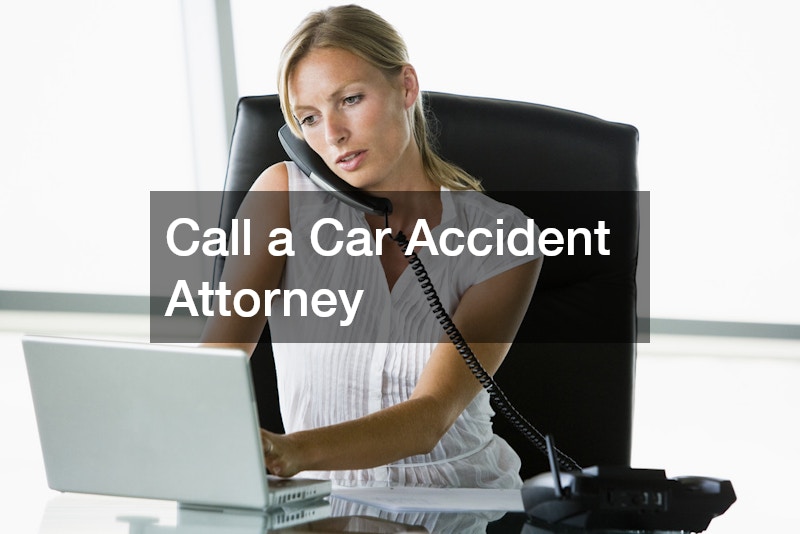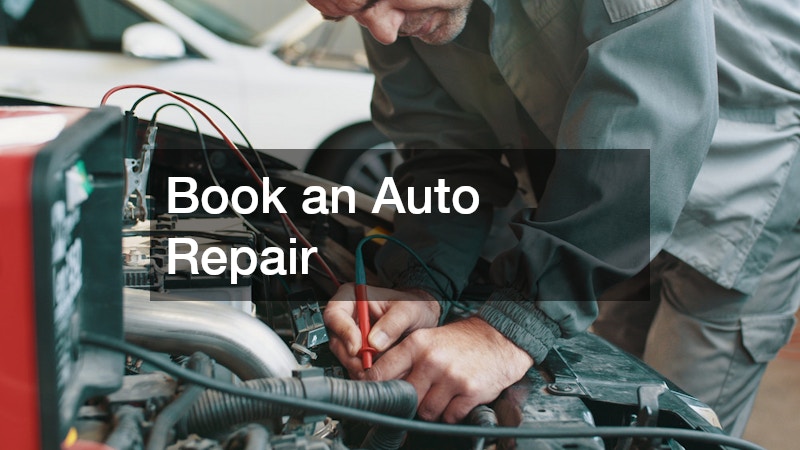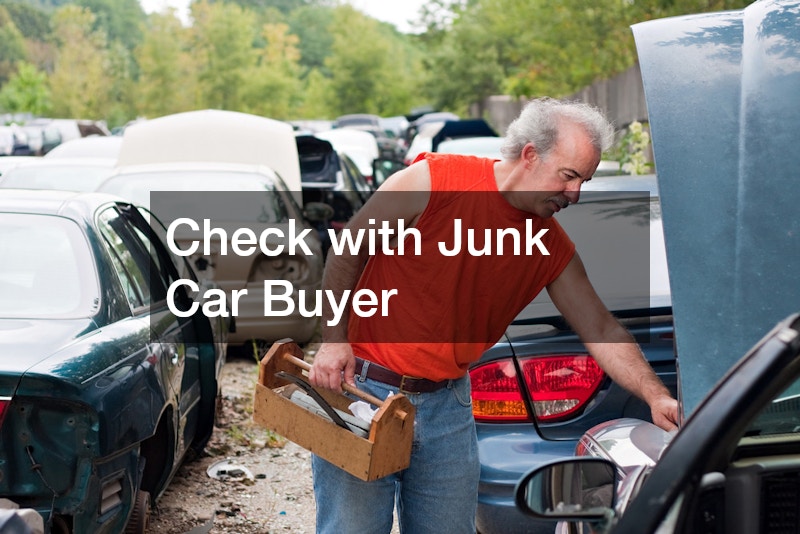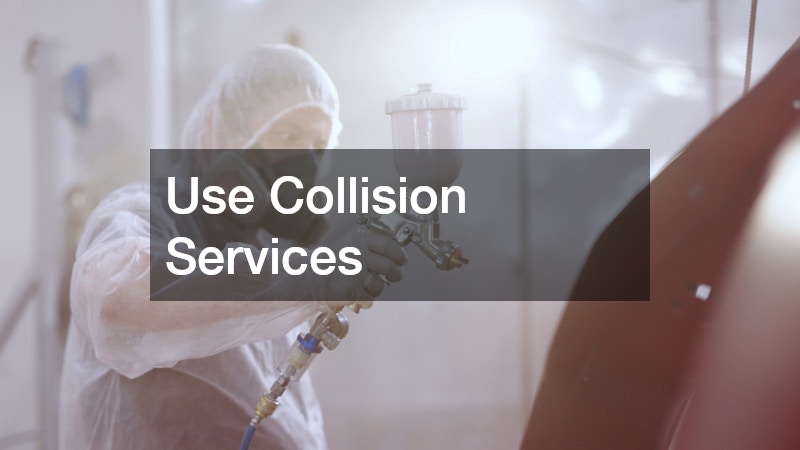The moments following a car accident are often filled with confusion, stress, and uncertainty. Once you’ve called the police and ensured that everyone is safe, it’s easy to feel overwhelmed about what comes next. However, the steps you take after law enforcement arrives are just as important as your immediate response. From gathering documentation to seeking help with repairs and legal advice, knowing what to do in the car wreck aftermath can help you avoid long-term consequences.
One of the most crucial things to consider is whether you need legal support. Depending on the severity of the accident and who was at fault, speaking with a car accident attorney may be necessary. Legal guidance can help you navigate complex insurance issues, potential lawsuits, and protect your rights. Additionally, if you’ve sustained injuries, even seemingly minor ones, a personal injury lawyer can provide insight into your options for compensation and ensure your medical costs are fairly covered.
Vehicle damage is another key concern. Whether your car has suffered a cracked windshield, body damage, or won’t start at all, quick action is required. You may need auto repair services or auto collision services to get your vehicle back on the road. In some cases, the damage may be too extensive to justify repair, which is when a junk car buyer can help you recoup some value and clear the way for a replacement vehicle.
It’s also essential to contact your auto insurance agency as soon as possible. Delaying this step could impact your ability to file a claim or receive benefits. Your insurance provider will guide you through the process of estimating damages, arranging inspections, and determining coverage. If your car’s glass has been shattered or damaged during the accident, scheduling auto glass replacements or auto windshield repair can ensure your vehicle remains safe and legally drivable.
Each of these actions plays a vital role in managing the aftermath of a car accident. From specialized vehicle repairs to legal consultations, this guide outlines ten specific steps to take after the police have left the scene. By following each one carefully, you’ll be better equipped to handle the car wreck aftermath with clarity, confidence, and control.
1. Call a Car Accident Attorney

One of the first things to do after the police have assessed the accident scene is to contact a car accident attorney. Legal professionals in this field specialize in helping individuals navigate the often confusing process that follows a crash. From dealing with insurance claims to protecting your rights in case of litigation, an experienced attorney provides essential support when you’re most vulnerable.
In the car wreck aftermath, it’s not always easy to determine who’s at fault or whether you may be entitled to compensation. A car accident attorney can assess the evidence, speak with witnesses, and work with investigators to build a strong case. Their goal is to make sure that you’re not unfairly held responsible and that you receive the financial help you deserve.
Additionally, working with an attorney early on prevents you from making missteps that could weaken your case. Something as simple as a misworded statement to an insurance adjuster could be used against you later. By having a knowledgeable car accident attorney on your side, you gain peace of mind and improve your chances of a favorable outcome.
2. Hire a Car Accident Lawyer
Hiring a car accident lawyer is one of the most effective steps you can take to safeguard your legal interests. While attorneys and lawyers are often used interchangeably, some people prefer the term lawyer to emphasize the advisory aspect of the profession. In either case, their role is crucial to guiding you through legal complexities post-accident.
During the car wreck aftermath, a car accident lawyer can help you understand the nuances of state laws and ensure you meet important deadlines for filing claims. They can assist in gathering documentation, negotiating with insurance companies, and advising you on whether or not to settle. Their involvement often increases the likelihood of a fair resolution.
Lawyers also serve as advocates who are familiar with the tactics insurance companies use to minimize payouts. Having a car accident lawyer speak on your behalf levels the playing field. Their negotiation skills and legal expertise help you avoid the pitfalls that can come with going it alone after an accident.
3. Book an Auto Repair

Once the immediate safety concerns are addressed, the condition of your vehicle becomes a priority. Booking an auto repair service quickly ensures that your car can be restored and prevents minor issues from escalating. Many shops will also help document damage, which may be helpful for insurance claims.
In the car wreck aftermath, even small problems like alignment issues or engine warning lights can signal deeper concerns. Delaying auto repair could not only cost more later but might also make your car unsafe to drive. A thorough inspection by professionals ensures all mechanical and cosmetic issues are identified and fixed.
Beyond functionality, prompt repairs help preserve your vehicle’s value. Auto repair experts can restore your car to its pre-accident condition and help you avoid complications if you choose to sell or trade it later. This makes prompt action a smart financial and safety decision.
4. Contact Insurance Agency
Reaching out to your auto insurance agency right after a car accident is a non-negotiable step. Your insurance company needs to know about the incident promptly to begin processing your claim. Most agencies also offer guidance on what to do next and can even help arrange towing or repairs.
As part of managing the car wreck aftermath, your auto insurance agency will likely request detailed information such as photos, police reports, and personal statements. Timely communication helps avoid delays in claim approval and ensures you meet any contractual obligations.
Insurance agencies also serve as intermediaries between you and other parties involved in the accident. They can handle communication with the other driver’s insurer and negotiate settlements on your behalf. This saves you time and reduces the stress that often comes with post-accident logistics.
5. Check with Junk Car Buyer

If your vehicle is severely damaged, it may not be worth repairing. In this case, contacting a junk car buyer could be a practical solution. These businesses specialize in purchasing totaled or non-operational vehicles and can offer a fair market price based on your car’s condition.
In the car wreck aftermath, dealing with a non-drivable vehicle can be a hassle. A junk car buyer will often provide towing services, take the vehicle off your hands, and pay you on the spot. This option simplifies your responsibilities and gives you immediate cash you can use toward a new car or other expenses.
Selling your car to a junk buyer also ensures that it is disposed of in an environmentally friendly manner. Reputable buyers follow proper recycling protocols and may even salvage usable parts. This makes the process both financially and ecologically responsible.
6. Fix Windshield Damage
A damaged windshield is not just an inconvenience—it’s a safety risk. Auto windshield repair should be one of your first steps if the glass was cracked or shattered during the accident. Not only does it impair visibility, but it also compromises the structural integrity of your vehicle.
During the car wreck aftermath, many people overlook small chips or cracks, assuming they aren’t serious. However, these imperfections can grow quickly, especially under temperature changes or road pressure. Prompt auto windshield repair can often be completed in under an hour and may be fully covered by insurance.
Repairing your windshield right away prevents bigger issues down the line and can even save you from a costly full replacement. It also ensures your car remains legally compliant and safe for everyday use, giving you one less thing to worry about.
7. Use Collision Services

For more extensive vehicle damage, turning to professional auto collision services is essential. These specialists are trained to restore both the appearance and structural integrity of your car after a serious accident. They handle everything from bodywork to frame alignment and paint matching.
In the car wreck aftermath, collision repair shops can coordinate directly with your insurance company to get work approved quickly. They also conduct detailed inspections to uncover hidden damage that might otherwise be missed. This ensures your vehicle is fully road-ready.
Choosing experienced auto collision services not only improves the quality of repairs but can also affect the resale value and safety of your car. Certified shops often offer warranties, so you can drive with confidence knowing the repairs meet industry standards.
8. Get Toyota Repairs
If you drive a Toyota and your vehicle was involved in an accident, it’s important to seek out specialized Toyota repairs. These vehicles have unique components and systems that require knowledge specific to the brand. Certified Toyota repair shops ensure that manufacturer guidelines are followed.
In the car wreck aftermath, taking your Toyota to a general mechanic may result in missed details or improper repairs. Specialized technicians have access to OEM (original equipment manufacturer) parts and the diagnostic tools needed for accurate service. This preserves your warranty and vehicle performance.
Whether it’s a Prius, Camry, or Tacoma, getting brand-specific repairs guarantees that your car receives the best possible care. It also reassures you that repairs were done correctly, reducing future problems and preserving the life of your Toyota.
9. Talk to an Injury Lawyer
Not all injuries are obvious immediately after an accident. Consulting a personal injury lawyer can help you protect your rights if you experience pain or symptoms days or weeks later. These legal professionals specialize in injury claims and are crucial when medical care is involved.
As part of the car wreck aftermath, an injury lawyer will gather medical records, review treatment costs, and assess how your injuries may affect your quality of life. This can help you pursue compensation for pain, suffering, lost wages, and long-term care if needed.
A personal injury lawyer also shields you from aggressive tactics by insurance companies trying to minimize payouts. Their expertise ensures you receive the support you need for both recovery and justice, especially in complex or contested cases.
10. Replace Broken Glass
Broken or damaged windows compromise your vehicle’s safety, visibility, and insulation. Scheduling auto glass replacements is necessary if any glass was shattered during the accident. These services are quick and often mobile, coming to your home or workplace for convenience.
During the car wreck aftermath, replacing side or rear windows may not seem urgent, but waiting too long can lead to further complications like water damage or theft. Timely glass replacement restores your car’s functionality and ensures your belongings stay secure.
Quality auto glass replacements match original specifications and are installed using industry-standard adhesives and techniques. This guarantees durability and a proper fit, bringing your vehicle back to safe driving condition.
The period following a car accident is often overwhelming, but knowing what to do after calling the police can make all the difference. Whether it’s contacting a legal professional, booking vehicle repairs, or handling insurance claims, each step plays a vital role in recovering from the car wreck aftermath.
Legal guidance from a car accident attorney or personal injury lawyer helps protect your rights, especially when liability or injuries are involved. Prompt communication with your auto insurance agency ensures that claims are processed without unnecessary delays. Meanwhile, addressing vehicle issues—from minor windshield damage to serious bodywork through auto collision services—is crucial to restoring your car’s safety and value.
In some cases, you may decide to part ways with your vehicle altogether. When the damage is beyond repair, a junk car buyer provides a quick and hassle-free way to move forward. On the other hand, if your car can be saved, options like auto body repairs or auto glass replacements help extend its lifespan.
Ultimately, handling the car wreck aftermath with clarity and urgency sets the tone for your recovery. These ten steps are designed to guide you through the chaos, helping you make informed decisions that protect your health, your vehicle, and your financial well-being. Armed with the right information and support, you’ll be able to move past the accident and regain control of your daily life.
